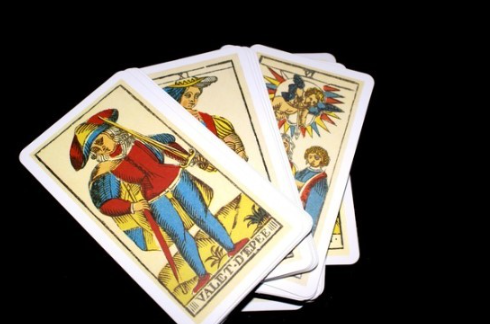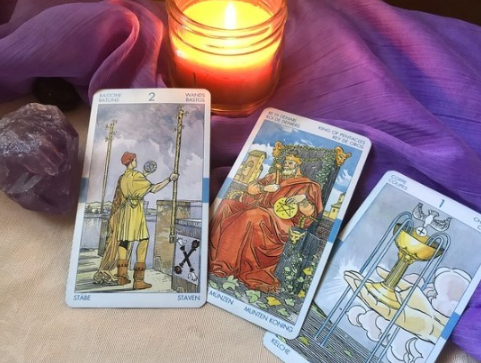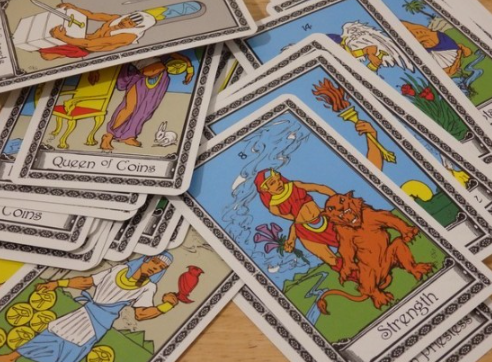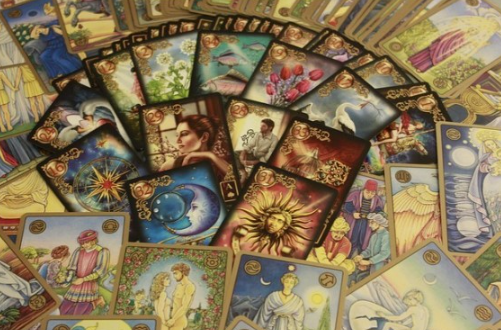Demystifying Tarot: Separating reality from common myths.

The Tarot, as a tool for self-knowledge and guidance, has accompanied humanity for centuries, guiding those who seek answers in the midst of uncertainty. Its usefulness lies in its ability to reveal deep aspects of our minds, emotions, and circumstances. Through the symbolism of its cards, Tarot offers us a different perspective on the problems we face, illuminating paths that we may not have considered. It is a tool that, far from being magical or mystical in the traditional sense, works with intuition and the unconscious, allowing us to access inner truths that might be hidden from plain sight.
One of the Tarot's greatest benefits is its versatility. It is not strictly limited to predicting the future, but invites us to reflect on the present and the past, helping us better understand the dynamics of our lives. Through the cards, we can gain clarity about our relationships, our professional or personal goals, and even about our own behavior patterns. This type of reflection allows people to face their problems from a position of greater understanding and wisdom, making more informed and conscious decisions.
Additionally, Tarot encourages personal empowerment. Every reading is an invitation to take control of our life, to explore our options, and to visualize the path we want to follow. It reminds us that we are the architects of our destiny, and although the cards may indicate trends or warnings, the ultimate responsibility for our choices always lies with us. Thus, Tarot becomes a useful tool not only for seeking external answers but also for fostering introspection and personal growth.

Tarot: A Tool for Self-Knowledge, Not a Magical Art
At its core, Tarot is a means of reflecting on oneself. Each card acts as a mirror that allows us to see facets of our life and emotions that we may not have considered before. However, instead of being a magical or esoteric tool for predicting the future, Tarot offers a way to explore possibilities, reveal internal patterns, and discover paths toward personal growth. It is important to understand that it is not a deck of divination in the popular sense, but rather a map of human experiences.
One of the most common myths is that Tarot is linked to mystical or supernatural powers. Nothing could be further from the truth. Tarot does not control fate or have power over external circumstances. Instead, it provides us with the opportunity to observe and meditate on situations and emotions from different angles, helping us make more conscious decisions aligned with our true desires and values.
"Negative" Cards in Tarot: A False Perception
One of the most common fears when consulting Tarot is the fear of encountering "negative" cards that predict a dark fate. This myth has been perpetuated by popular culture, but the truth is that there are no inherently negative cards in Tarot. Every card, even those that seem more challenging like "The Tower" or "Death," represents transformations, changes, or the need to free ourselves from situations that no longer benefit us.
The interpretation of a card largely depends on the context of the question being asked and the personal situation of the querent. For example, the "Death" card, often feared, does not necessarily indicate literal death but rather deep transformation, the closing of a cycle, and the beginning of something new. In this way, there are no cards that are exclusively "good" or "bad," as their meaning adapts to the individual's circumstances and the context in which they are consulted.

The Myth of Physical Presence: Is It Necessary to Be in Person for an Accurate Reading?
In the digital age, many people wonder if a Tarot reading conducted remotely, whether by video call or phone, holds the same validity as an in-person reading. The truth is that the energy and focus brought to a Tarot session are far more important than physical location. Whether the reading is conducted in person or remotely, Tarot remains an effective tool for introspection and self-knowledge.
The most important element in a Tarot reading, whether in person or virtual, is the connection between the reader and the querent, as well as the querent’s willingness to open up and reflect on the question they’ve brought forward. Energy flows regardless of physical space, so it is not necessary to be in the same room to receive a clear and meaningful reading.
The Answers Are Not Always What We Expect: Accepting the Truth Tarot Reveals
Often, when someone consults Tarot, they do so with the hope of receiving answers that align with their expectations. However, it is important to remember that Tarot does not tell us what we want to hear, but rather what we need to know. This can lead to receiving answers that are not always pleasant, but they are an invitation to reflect and consider aspects of our lives that we may have overlooked.
Tarot reflects what is in our subconscious, bringing to light issues that may be influencing our decisions unconsciously. Although sometimes the truth revealed by Tarot can be difficult to accept, it is precisely in those moments that the greatest opportunity for personal growth presents itself. We must be prepared to accept what Tarot shows us, even if it is not what we expected to hear.

No One Can Consult Tarot for You: The Importance of Personal Participation
One of the most curious myths surrounding Tarot is the belief that someone else can consult it on your behalf if you feel fear or doubt. However, this is a misconception. For a Tarot reading to be effective, it is essential for the person interested to participate directly in the process. This includes not only being present during the spread but also formulating the questions and actively participating in the reflection on the answers.
Each person has a unique energy, and that energy is fundamental for Tarot to provide a meaningful reading. If you allow someone else to consult Tarot on your behalf, the answers obtained will not be accurate or relevant to your personal situation. Tarot is a tool for self-knowledge, and as such, it requires you to be the one actively involved in the process.
Debunking the Fear of Tarot: There’s Nothing to Fear
Finally, it is important to dispel the idea that consulting Tarot can have negative or dangerous consequences. There is nothing in Tarot that causes physical, emotional, or spiritual harm. Instead of fearing a bad experience, we should approach Tarot with an open mind, ready to explore. By doing so, we can make the most of this powerful tool for introspection and personal growth.
Tarot is not a source of definitive answers or unchangeable predictions, but rather a reflection of our own energies and emotions at a given moment. It helps us see more clearly what is already within us, giving us the opportunity to make more conscious decisions aligned with our values and goals. This is a valuable tool for those seeking to explore their inner world and reflect on their lives. By moving away from the myths that surround it and understanding its true purpose, we can harness its full potential to help us grow and evolve as individuals.
You may be interested too
The Emotional Calendar 2026: Months Of Greatest And Least Attraction